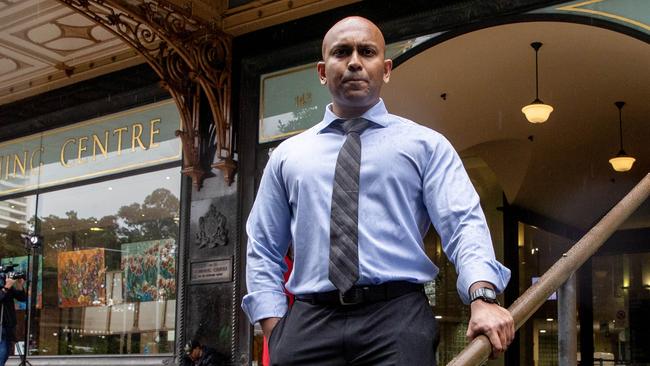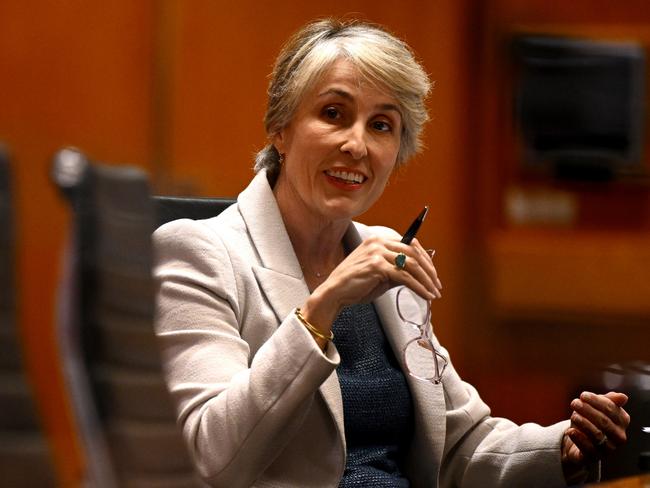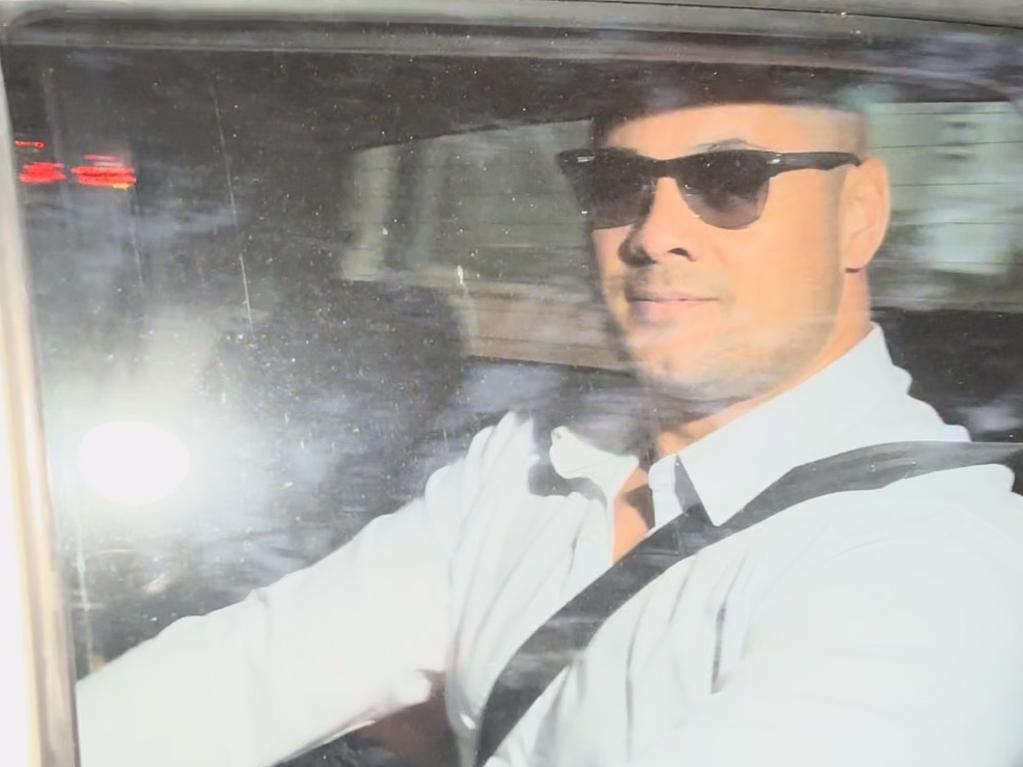‘Sacrifice the truth’: Rape-acquitted cop Ankit Thangasamy slams DPP Sally Dowling
A senior police officer acquitted of rape has blasted prosecutors for ‘wasting the court’s time’, saying Sally Dowling’s office ‘sacrifices the truth’ to run baseless rape prosecutions.

A senior police officer acquitted of rape has blasted the NSW Office of the Director of Public Prosecutions for “wasting the court’s time” in bringing his matter to trial, saying the office is powered by a “certain ideology” that “sacrifices the truth” to run baseless rape prosecutions.
Ankit Thangasamy, who was found not guilty by a jury after being accused of raping a woman in a club toilet cubicle, told The Australian the ODPP was “making a mockery of the court process” by prosecuting meritless cases, to the detriment of legitimate sexual assault victims.
“I’m not against the #MeToo movement, and I firmly believe that where an allegation of sexual assault has been made, complainants and victims need their day in court, and I’m fully supportive of that,” Mr Thangasamy, a NSW Police Force senior constable, said. “That’s what’s so toxic and dangerous about this reckless conduct of the DPP, which is that by running these rubbish cases, they’re undermining legitimate complainants and legitimate victims of sexual assault.”
An ODPP spokesperson said Mr Thangasamy’s matter was “prosecuted in accordance with the prosecution guidelines” and the issues raised in the matter “were appropriate to be considered by a jury”.
Mr Thangasamy acted for himself throughout the three-week trial while prosecutor Emma Blizard represented the crown.
His comments come as chief prosecutor Sally Dowling and her office continue to face criticism for the way sexual assault matters are handled across the state.
Ms Dowling late last year ordered an audit of all rape cases committed to trial this year, after several NSW judges criticised her office for running sexual assault prosecutions that had no hope of securing a conviction.
The Australian understands Mr Thangasamy’s case was not audited. He had been charged with one count of sexual intercourse without consent in March 2022 over the alleged incident which occurred within a toilet cubicle in a bar in the inner-Sydney suburb of Haymarket.

The woman alleged Mr Thangasamy failed to stop when she told him she did not want to have penetrative sex. Mr Thangasamy, married at the time of the alleged assault, said they never had penetrative sex but engaged in consensual oral sex in the cubicle.
NSW District Court judge Craig Smith awarded costs to Mr Thangasamy on Friday, saying the crown’s case was undermined by a security guard who testified to watching the pair over the wall of the cubicle after seeing them enter the club bathroom together.
The eyewitness evidence was central to a “no bill” application filed by Mr Thangasamy prior to trial, in which he invited the crown to drop the case rather than carry on. His application was rejected by the ODPP.
In making the costs application, Mr Thangasamy said the security guard’s evidence “devastated” the crown’s case, and made the prosecution “unreasonable”.
“Whereas the crown alleged that the applicant turned the complainant around, the evidence of the eyewitness was that the complainant turned around by herself. Whereas the crown alleged that the applicant removed the complainant’s underwear, the evidence of the eyewitness was that the complainant removed her own underwear,” Mr Thangasamy submitted.
“Whereas the crown alleged that the complainant said ‘stop’ as the applicant was removing her underwear, the evidence of the eyewitness was that after removing her own underwear, the complainant held on to the toilet cubicle with her hands and bent over, looking straight ahead. The complainant did not say anything.”
Mr Thangasamy argued the security guard’s evidence was “credible and reliable”.
“He had no connection to either party. He was not under the influence of any drug or alcohol,” he wrote. “His involvement in the incident was purely in an official capacity, as a security guard working to ensure the safety and comfort of the patrons in the venue.”
Judge Smith on Friday told the court the security guard’s evidence was “objective and relevant to very substantially undermining the reliability of the complainant’s evidence and more broadly the crown case”.
“This must also be seen in the context of the crown case which accepted that some degree of consensual sexual intercourse occurred and ... where there was a consistency at least as to consensual sexual activity,” he said.
The Australian understands the crown made an application to cross-examine the security guard, citing differences in his written and verbal evidence.
This was rejected by Judge Smith.
In his costs application, Mr Thangasamy also raised concerns about the “inconsistent” nature of the complainant’s evidence.
“The complainant’s evidence at the trial was of ongoing and painful penetration,” he submitted. “However, this evidence was inconsistent with what she told Inspector Trevallion and Dr Pfeiffer in the hours following the incident. As she told Inspector Trevallion, ‘I don’t know if he had sex with me or not’.”
The court heard the woman left the club with a friend after the alleged assault and, feeling “nauseous” and “fairly disoriented’’, reported the incident at Redfern police station.
An ODPP spokesperson said “the fact that the jury ultimately acquitted the accused or that the accused was granted a certificate under the Costs in Criminal Cases Act does not mean that the prosecution was without merit”.
“While this trial concluded before the sexual assault review began, the viability of a prosecution is constantly under review, including when the defence makes no-bill representations.
“The question of whether a Costs Certificate should be granted involves the court applying a ‘hindsight’ test and making an assessment based on all relevant facts, which includes evidence of those facts which emerged at trial and not just those facts known to the prosecution at the time the prosecution was instigated. In this case significant new facts emerged at trial and it was for this reason that the prosecution did not oppose the court exercising its discretion to grant a certificate.”
Mr Thangasamy told The Australian by putting allegations that were “obviously false” to a jury, the crown “legitimised those false allegations” and destroyed his ability to put his trust in the prosecutors.
“You’re also going to end up with people in prison that are innocent,” he said. “It’s a numbers game.”




